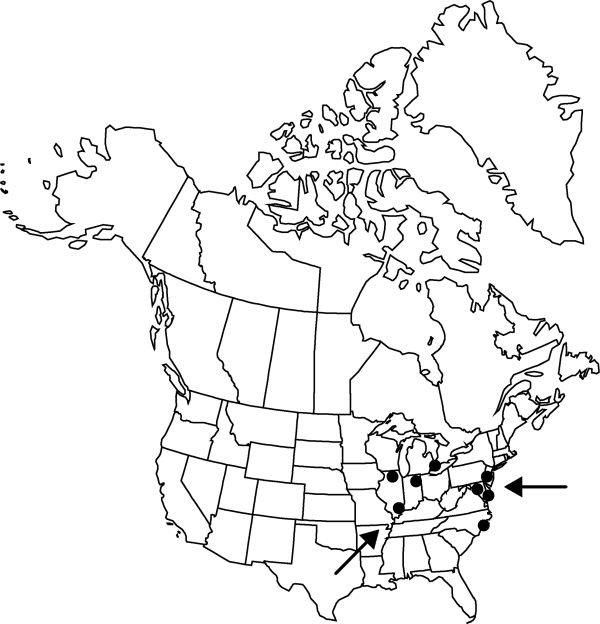Difference between revisions of "Chenopodium opulifolium"
in J. Lamarck and A. P. de Candolle, Fl. Franç. ed. 3, 6: 372. 1815.
FNA>Volume Importer |
FNA>Volume Importer |
||
| Line 23: | Line 23: | ||
|elevation=0-200 m | |elevation=0-200 m | ||
|distribution=Ont.;Ill.;Ind.;Md.;N.C.;Pa.;native s Europe;introduced occasionally in other parts of the world. | |distribution=Ont.;Ill.;Ind.;Md.;N.C.;Pa.;native s Europe;introduced occasionally in other parts of the world. | ||
| − | |discussion=<p>Many previous reports of Chenopodium opulifolium in North America were based on misidentifications. Determining its present occurrence and exact distribution in the New World requires special study.</p> | + | |discussion=<p>Many previous reports of <i>Chenopodium opulifolium</i> in North America were based on misidentifications. Determining its present occurrence and exact distribution in the New World requires special study.</p> |
|tables= | |tables= | ||
|references= | |references= | ||
| Line 48: | Line 48: | ||
|publication year=1815 | |publication year=1815 | ||
|special status= | |special status= | ||
| − | |source xml=https://jpend@bitbucket.org/aafc-mbb/fna-data-curation.git/src/ | + | |source xml=https://jpend@bitbucket.org/aafc-mbb/fna-data-curation.git/src/8f726806613d60c220dc4493de13607dd3150896/coarse_grained_fna_xml/V4/V4_570.xml |
|genus=Chenopodium | |genus=Chenopodium | ||
|subgenus=Chenopodium subg. Chenopodium | |subgenus=Chenopodium subg. Chenopodium | ||
Revision as of 18:29, 18 September 2019
Stems erect to ascending, usually much-branched, 0.2–0.7(–10) dm, densely farinose. Leaves non-aromatic; petiole 0.5–2(–3) cm, shorter than or equaling leaf blades; blade ovate to rhombic-ovate, 1–3.5(–4.5) × 1–3(–4) cm, base broadly cuneate to abruptly truncate, distinctly 3-lobed, margins dentate to ± entire, apex obtuse (rarely subacute), grayish, usually densely farinose on both surfaces. Inflorescences glomerules in terminal and lateral compound spikes, 2–19 cm; glomerules subglobose, 3–4 mm diam.; bracts absent. Flowers: perianth segments 5, distinct nearly to base; lobes ovate, ca. 1 × 1.1 mm, apex obtuse, densely farinose, keeled, covering fruit at maturity; stamens 5; stigmas 2, 0.2 mm. Utricles depressed-ovoid; pericarp nonadherent, smooth to indistinctly granulate. Seeds lenticular to compressed-subglobose, 0.8–1.25 mm diam.; seed coat black, smooth or faintly reticulate. 2n = 54.
Phenology: Fruiting late summer–fall.
Habitat: Disturbed soils in open habitats
Elevation: 0-200 m
Distribution

Ont., Ill., Ind., Md., N.C., Pa., native s Europe, introduced occasionally in other parts of the world.
Discussion
Many previous reports of Chenopodium opulifolium in North America were based on misidentifications. Determining its present occurrence and exact distribution in the New World requires special study.
Selected References
None.